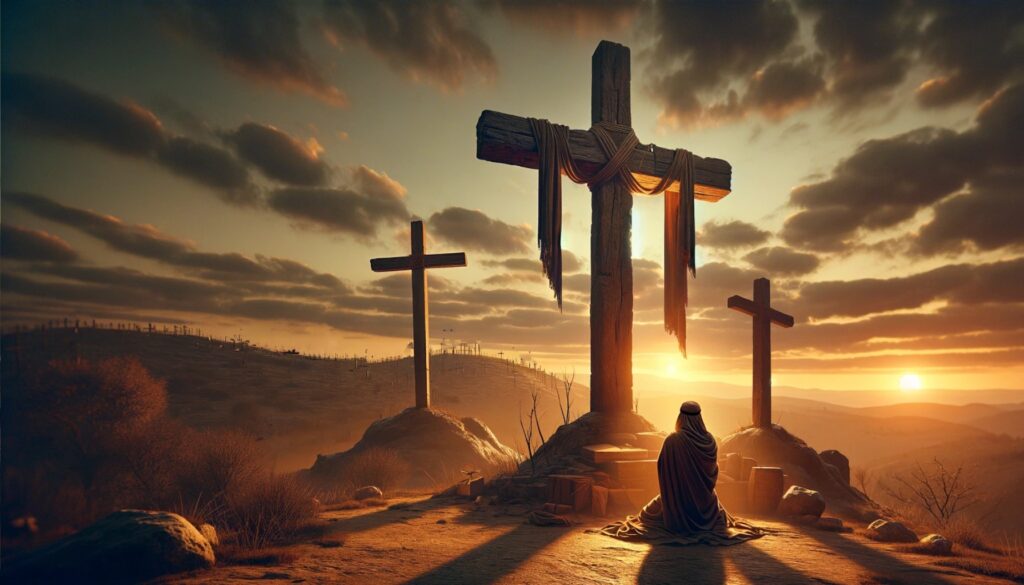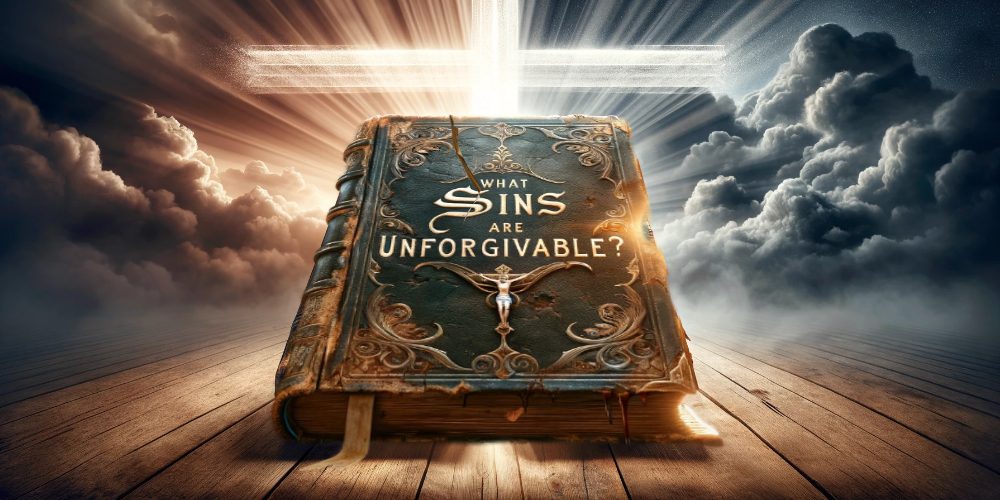In the quiet chambers of our hearts, where battles are fought amidst raging human passions, the question is asked, “What sins are unforgivable?” The Apostle Paul, in his epistle to the Ephesians, solemnly warns, “And grieve not the holy Spirit of God, whereby ye are sealed unto the day of redemption” (Ephesians 4:30). To grieve the Spirit is to silence this heavenly voice, and herein lies the gravity of our choices.
We hold a power so profound that it can quench the very Spirit of God. This is not a power granted lightly, for with it comes the solemn responsibility of choice. We may walk in obedience, bathed in the grace of our Redeemer, or stumble into disobedience, bearing the weighty consequences.
The unforgivable sin, the blasphemy against the Holy Spirit, is not found in a momentary lapse or a hasty word. It is the steadfast, deliberate rejection of truth and evidence. God does not blind our eyes or predestine our downfall; rather, it is our persistent resistance to His Spirit, a path of unbelief and defiance that we tread by choice.
Yet, every refusal to heed the Spirit’s call is a seed planted that yields a harvest of darkness. Conversely, each truth embraced nurtures a seedling of light, each temptation resisted strengthens our moral fiber, and every victory over self paves the way to higher, nobler triumphs. The sinner’s destruction is self-wrought through relentless impenitence.
The mystery of the sin against the Holy Ghost is unraveled in the persistent refusal to answer the plea for repentance. It’s not an unfathomable enigma but a clear and present danger of a heart hardened against divine invitation.
But let us not misconstrue the breadth of God’s forgiveness. His promise to “abundantly pardon,” as declared in Isaiah, stretches beyond our comprehension. His forgiveness is not merely a release from condemnation but a reclamation from sin, a transformation of the heart by redeeming love.
King David, in his penitential psalms, grasped the essence of divine forgiveness—a clean heart and a renewed spirit, a transgression removed as far as the east is from the west.
Our Savior bore the cross, the burden of our guilt, revealing the depths of His love to draw us to Himself. He calls us to emulate His love, to be kind, tenderhearted, forgiving each other as God, in Christ, forgave us (Ephesians 4:32).

The cornerstone of receiving and imparting this divine love is to know and believe in the love God has for us. The adversary, Satan, strives to blind us to this love, making us feel unworthy of God’s mercy. He taunts us with our sins, whispering lies of despair. Yet, it is in the face of our sins that we must turn to God in prayer, believing in the redeeming blood of Jesus Christ.
Forgiveness is not earned by our deeds; it is a divine gift, founded upon the spotless righteousness of Christ. We must not trivialize our guilt but recognize the heavy toll of sin, a toll so grievous that only the Cross can reveal its enormity.
Learn more about forgiveness with our free Bible Studies on forgiveness.
To bear our own guilt would be insufferable, but the Sinless One took our place. In confessing our sins, we find that God is “faithful and just to forgive us our sins, and to cleanse us from all unrighteousness” (1 John 1:9). What a wondrous truth! He is just and the Justifier of those who have faith in Jesus.
Consider this: the unforgivable sin is not a destination at which one arrives unawares, but the end of a path chosen, step by resistant step. Yet, the way back to the Father’s embrace is always open, lit by the lantern of His Word, and paved with the blood of His Son. The question then is not of God’s willingness to forgive but of our readiness to seek His face and turn from our sins.
Let us then not be the architects of our ruin but the bearers of His grace, for “Who is a God like unto Thee, that pardoneth iniquity, and passeth by the transgression of the remnant of His heritage? He retaineth not His anger forever, because He delighteth in mercy” (Micah 7:18).
Come home, wanderer. Come home to the heart of God. For there is no sin too great, no chasm too wide, no soul too far gone that His mercy cannot reach. In the shadow of the Cross, let us lay down our burdens and find peace, for His arms are outstretched still.





